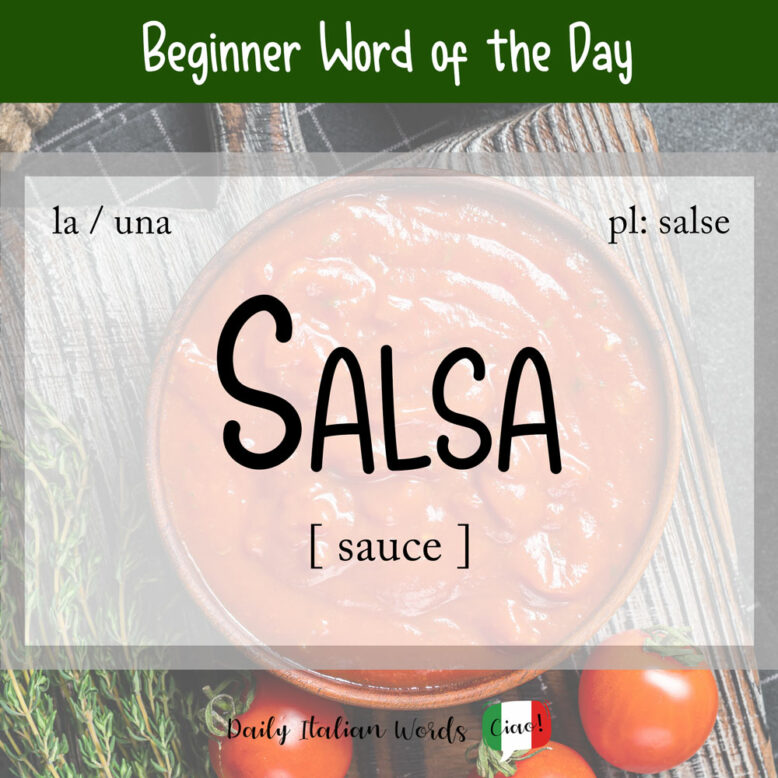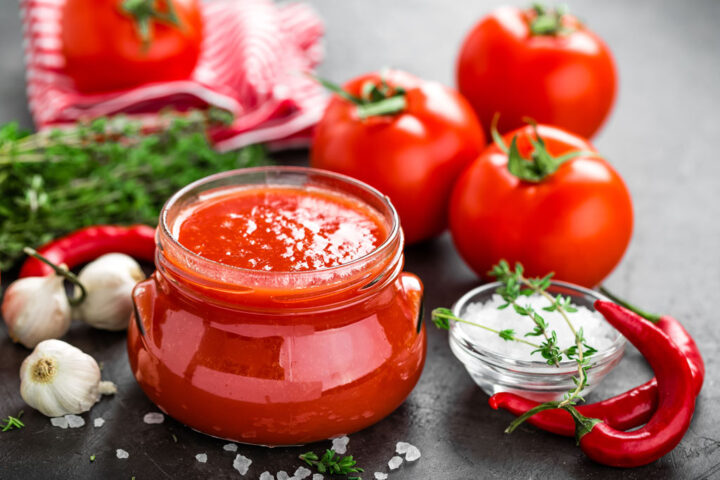The word salsa (feminine, plural: salse) in Italian is pretty easy to remember: just imagine yourself dancing to Salsa music while shaking a bottle of sauce! 😉

It can trace its origin back to the Latin word salsus which means salty.
Below are some of the most popular sauces you’ll find in Italy:
- salsa di / al pomodoro (also known as passata) = tomato sauce
- salsa di soia = soy sauce
- salsa di noci = walnut sauce (a popular Ligurian sauce used to dress gnocchi and pasta)
- salsa bianca = white sauce (usually based on oil, butter, flour, egg yolk, lemon juice or vinegar)
- salsa verde = green sauce (usually based on oil, garlic, capers, anchovies and parsley)
- salsa tartara = tartar sauce
- salsa di carne = gravy (lit. meat sauce)
Sai mica dove posso comperare la salsa di pomodoro?
Do you have any idea where I can buy tomato sauce?

Sugo is a close synonym of salsa but it tends to be used for sauces that have already been cooked and seasoned.
Servono ottimi ingredienti per realizzare un buon sugo di pomodoro.
You need excellent ingredients to make a good tomato sauce.

A fun idiomatic expression in Italian is in tutte le salse (lit: in all the sauces). It is used when you repeatedly present a single idea or proposal in various ways, usually with the goal of convincing someone to take your side or see things through your eyes.
Glie l’ho detto in tutte le salse, ma non mi ha dato retta.
I told him in every possible way, but he didn’t listen.
Another good expression is cambiare salsa (lit: to change sauce) which means to change something but only in appearance, just as you might cover one kind of bland food (such as pasta or rice) in various sauces to change the look and flavour.
Heather Broster is a graduate with honours in linguistics from the University of Western Ontario. She is an aspiring polyglot, proficient in English and Italian, as well as Japanese, Welsh, and French to varying degrees of fluency. Originally from Toronto, Heather has resided in various countries, notably Italy for a period of six years. Her primary focus lies in the fields of language acquisition, education, and bilingual instruction.


